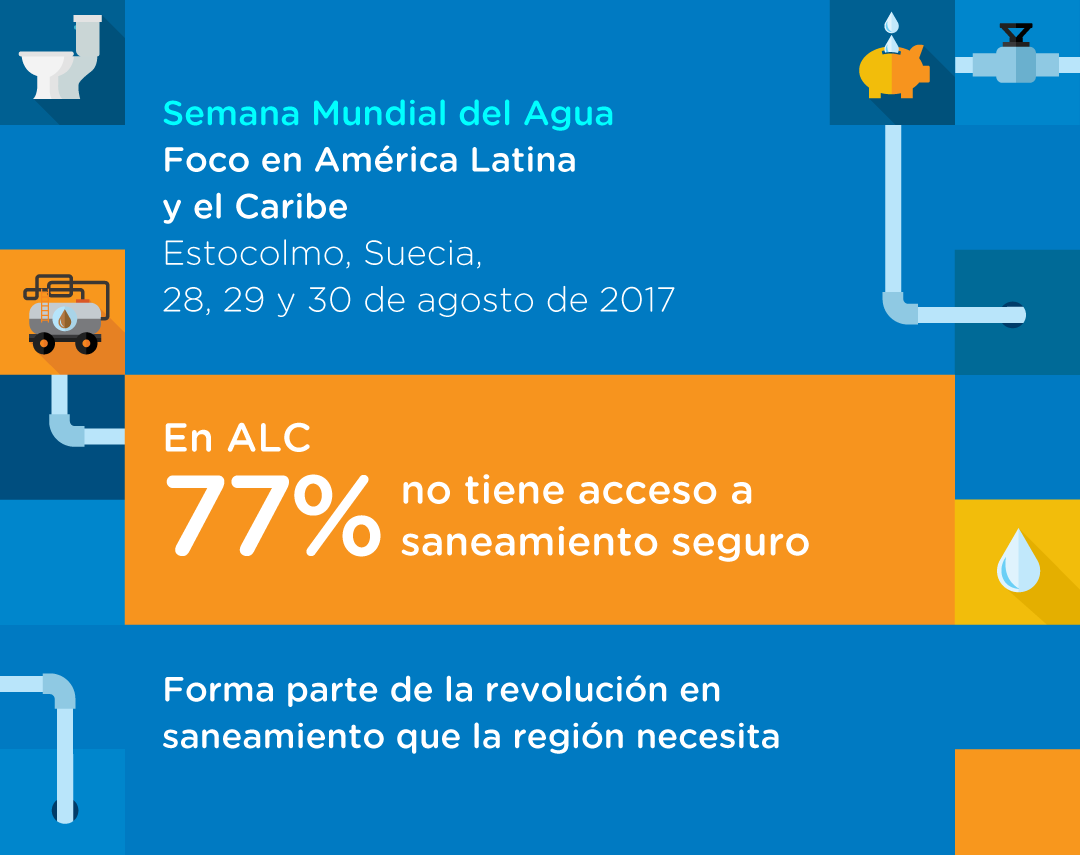Wastewater is a byproduct of human activity. Like most byproducts, it can have some sort of a second life. Just like steam, a byproduct of combustion and boiling water powered the industrial revolution; we are in need right now of a new revolution that recognizes that wastewater is actually a resource rather than a wasteful byproduct of our daily lives.
That revolution is already in the making: it is the revolution of the circular economy, in which there is a feedback loop of waste back into the system again as a resource eihter to maximize the benefit of minimize the loss. But that requires a lot of unconventional thinking and working; and in Latin America and the Caribbean (LAC) there is no exception.
The need for that kind of out of the box approach is one of the key messages for Eye on LAC sessions that the IDB is coordinating during World Water Week, a global gathering organized by the Stockholm International Water Institute (SIWI).
The logic of the circular economy is perfectly applicable to the water and sanitation sector. It involves shifting the viewpoint of wastewater away from “waste,” and exploring methods for its re-utilization and post-treatment. Some key potential benefits of this re-utilization include nutrient recovery for agricultural purposes, energy recovery via biogas generation, and using treated wastewater as a potential water resource recovery for agricultural, industrial, and even household needs.
However, to usher in this new approach, the region needs to take some key steps to accelerate the adoption of circular economy-based treatment models. Some of those steps include:
- Recognize that what is called “wastewater” is a resource, not simply waste;
- Integrate resource-recovery models in all levels of planning;
- Establish consistent and appropriate legislative frameworks;
- Better define context-specific and relevant water quality parameters;
- Enforce water quality standards
- Promote technological innovation;
- Foster financial innovation.
Without this focus, and with growing populations and potential climate change-related events, challenges will only grow more complex and onerous to manage, and conventional solutions even less able to resolve them effectively and efficiently.
The potential for reuse of wastewater in Latin America and the Caribbean is exponential, since LAC is the most urbanized region in the world and as such, the supply of wastewater is abundant. Despite the great potential, right now only 28% of all wastewater in the region is treated before being discharged in the environment. The challenges and opportunities in wastewater reuse are discussed in our latest publication, available here.
Just like in the early 18th century the byproduct of boiling water triggered the industrial revolution, our generation needs to think unconventionally to turn the byproduct of all human activities into resources.
To know more about the discussion of Eye on LAC, you can find the full agenda here:


Leave a Reply